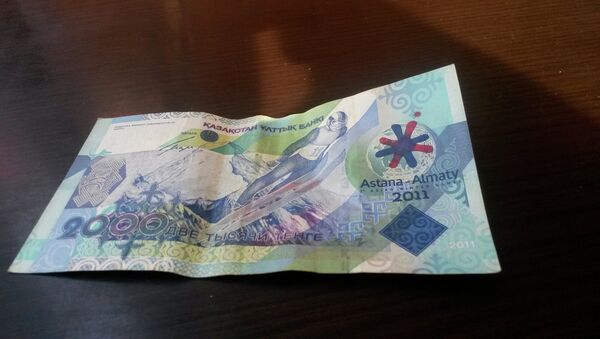ALMATY (Sputnik) – Kazakhstan’s National Bank will not influence the tenge exchange rate, but reserves the right to intervene should the financial situation in the country destabilize, the prime minister added.
"The [floating] exchange rate will be based on market supply and demand, taking into account the fundamental internal and external macroeconomic factors. This means that exchange rate changes may occur in the direction of easing or strengthening, which will be determined by the domestic currency market and global economic situation."
In July, Kazakhstan’s National Bank expanded the tenge to US dollar exchange rate corridor from 170-188 tenge per US dollar to 170-198 tenge per US dollar, citing a deteriorating external environment, primarily a drop in oil prices.
In contrast to a fixed currency, the value of which is tied to that of another currency, gold or a currency basket, a floating currency’s value is allowed to fluctuate in response to foreign-exchange market mechanisms.
The US dollar, as well as the Euro, are floating currencies.




